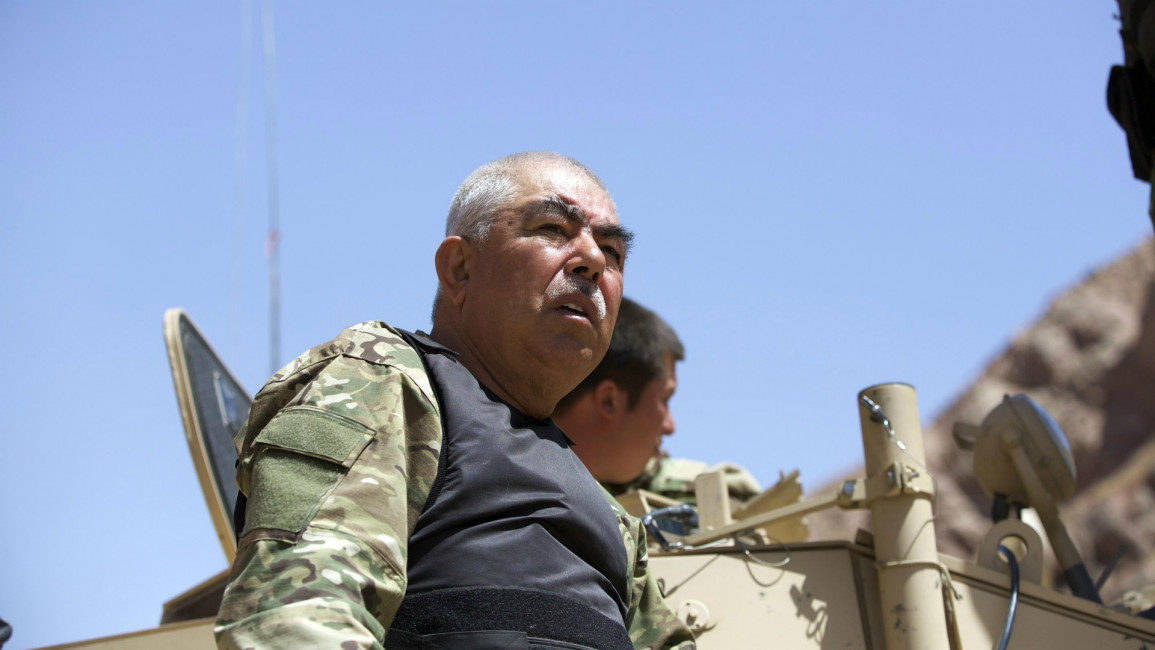
Afghan VP 'punches, kidnaps' rival at traditional sporting event
Scuffles, and fights between rival fans at sporting events are far from uncommon. However, they rarely involve political figures central to the running of a state.
However, this seems to have been the case in Afghanistan with reports that the country’s Vice President Gen. Abdul Rashid Dostum recently punched a fellow fan attending a traditional game of “buzkashi”.
The New York Times reported the incident took place at the sporting event involving two teams fighting for a dead goat, in which Dostum's bodyguards set upon the rival and temporarily took him hostage.
The man accosted by Dostum, wrote The New York Times on Sunday, is a rival, and former ally Ahmad Ischi, who heads the country’s Junbish political party with a strong political following in the north of the country.
“Dostum came there, and he walked around the stadium, then he called Ahmad Ishchi over to him .. After talking with him for a couple of minutes, he punched him, and his bodyguards started beating him with AK-47s. They beat Ahmad very badly and in a barbaric way,” a relative of Mr. Ischi told the American daily.
Although Dostum is ostensibly the second most powerful political figure in Afghanistan’s state apparatus such actions are not considered out of character for an individual that has been accused of numerous human rights violations.
He has been described as a “known killer”, and is banned from traveling to the US — despite the fact that Afghanistan is hugely reliant on American military and financial support — due to accusations of war crimes.
Dostum was previously an ally of the United States and worked alongside CIA operatives and Special Ops forces in efforts to oust the Taliban during operation “Enduring Freedom” in 2001.
However, Dostum consequently fell out of favour in Washington having openly defied the new government in Kabul.
His relationship with current Afghanistani President Ashraf Ghani is seen as a fractious alliance of mutual convenience.




